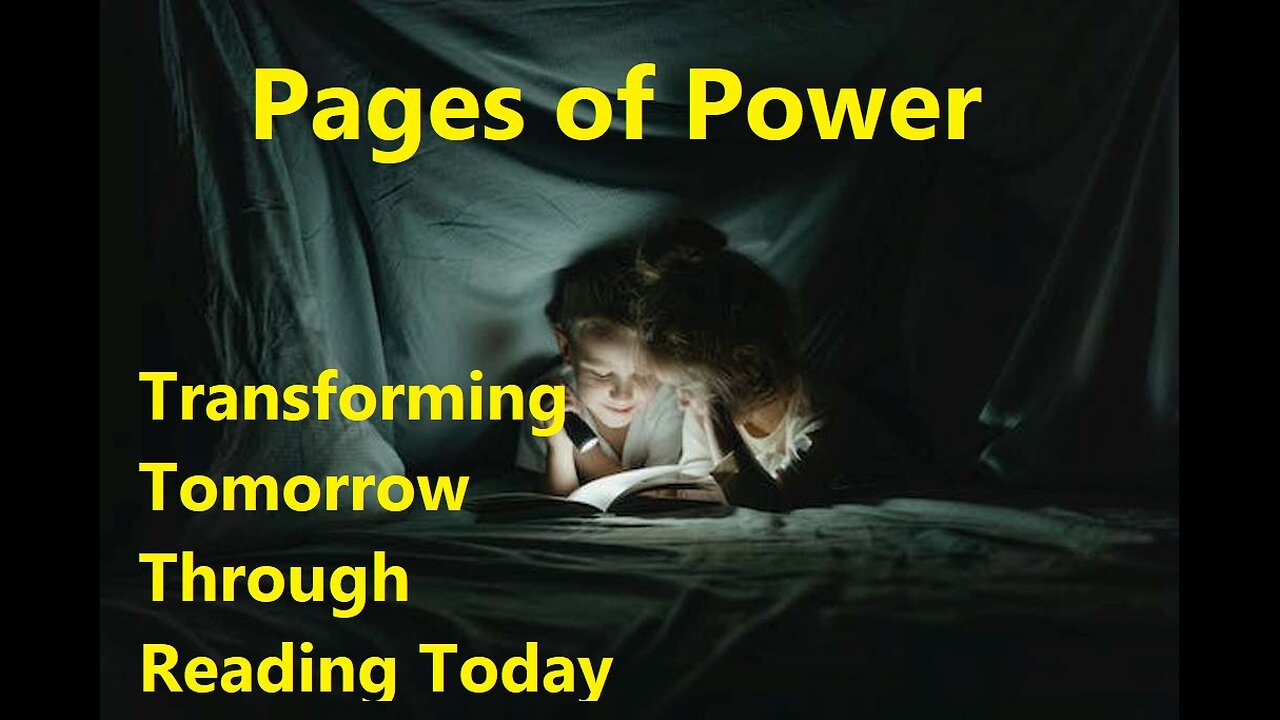Premium Only Content

Pages of Power: Transforming Tomorrow Through Reading Today
1. Technological Distractions: The pervasive use of smartphones, tablets, and other electronic devices has led to children spending more time on screens, diverting their attention away from traditional reading activities.
2. Lack of Role Models: Children often mimic the behavior of adults around them. If parents or caregivers are not avid readers, children may not see the importance of reading and may not develop a reading habit.
3. Busy Lifestyles: Over-scheduled routines with numerous extracurricular activities and homework leave children with limited leisure time. Reading may be perceived as a low priority in comparison to other activities.
4. Instant Gratification Culture: In an era of quick information access and instant gratification, some children may find the slower-paced process of reading books less appealing than more immediate forms of entertainment.
5. Educational System Pressure: An education system focused heavily on standardized testing and academic achievement might prioritize rote learning over fostering a love for reading, leading children to associate reading with a chore rather than enjoyment.
6. Limited Access to Books: Economic factors or living in areas with limited access to libraries and bookstores can hinder children's exposure to a variety of reading materials.
7. Preference for Visual Media: The rise of visually stimulating media, such as video games and streaming services, may attract children more than the immersive world of books, contributing to a decline in reading interest.
8. Peer Influence: In some cases, children may be influenced by peers who do not value or engage in reading, leading to a social stigma around being a reader.
9. Ineffective Reading Programs: If reading programs at schools are not engaging or fail to capture the interests of children, they may not develop a positive attitude towards reading.
10. Unawareness of Future Losses: Children may not realize the long-term consequences of not cultivating strong reading skills. Poor reading habits can impact academic success, critical thinking abilities, and overall cognitive development, potentially limiting future career opportunities and personal growth.
The losses children may not see in the future include missed chances for intellectual stimulation, reduced vocabulary and communication skills, diminished creativity, and a potential disadvantage in academic and professional pursuits that rely on strong reading abilities.
-
 2:13:33
2:13:33
Side Scrollers Podcast
4 hours agoAsmongold SUED for Emotional Distress + Hasan REJECTED+ INSANE Plane Crash + More | Side Scrollers
26.4K10 -
 1:00:32
1:00:32
VINCE
6 hours agoNYC Has Been Seized By The Communists | Episode 162 - 11/05/25
230K360 -
 1:47:26
1:47:26
LadyDesireeMusic
4 hours agoLive Piano & Convo Rumble Rants/ Subs to Request
19.4K2 -
 5:02:14
5:02:14
SOLTEKGG
5 hours agoGOING FOR KILL RECORD - BF6 SKIN Giveaway
15.5K1 -
 1:04:48
1:04:48
The Rubin Report
4 hours agoCharlie Kirk’s Warning for MAGA if Mamdani Won
46.8K179 -
 1:33:32
1:33:32
Graham Allen
7 hours agoTold You The War Was FAR From Over… The Blue Wave Just Proved It! Evil Is Fighting Back!
128K110 -
 2:54:17
2:54:17
Badlands Media
13 hours agoBadlands Daily: November 5, 2025 – Election Illusions, Filibuster Fallout & The Deep State’s Next Move
115K20 -
 3:01:00
3:01:00
Wendy Bell Radio
10 hours agoLike Sheep To Slaughter
138K128 -
 1:13:30
1:13:30
DML
6 hours agoDML LIVE: NYC Goes Socialist: Mamdani’s Victory
86.6K41 -
 1:04:43
1:04:43
Chad Prather
19 hours agoTruth on Trial: When Fear Meets Faith
103K54